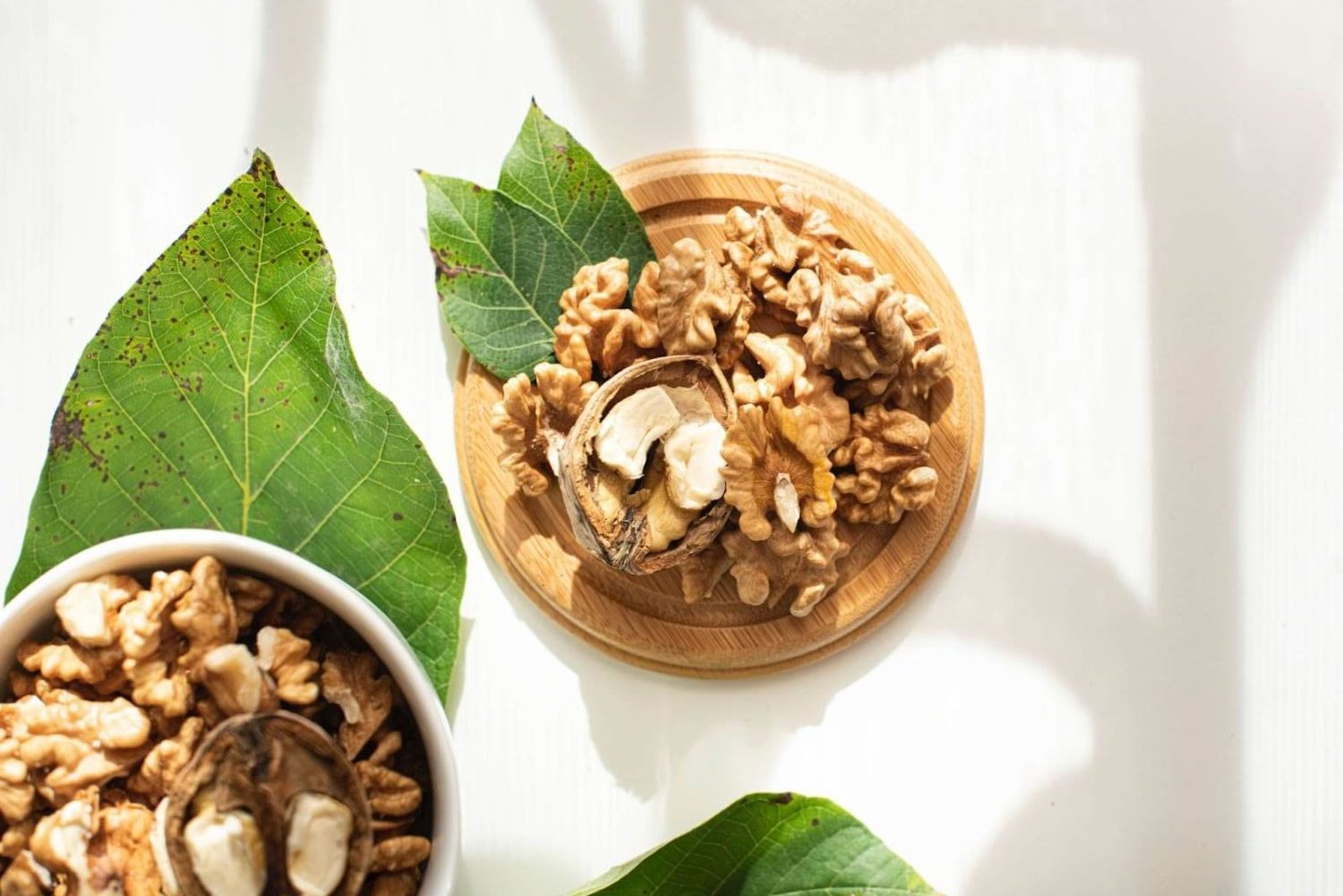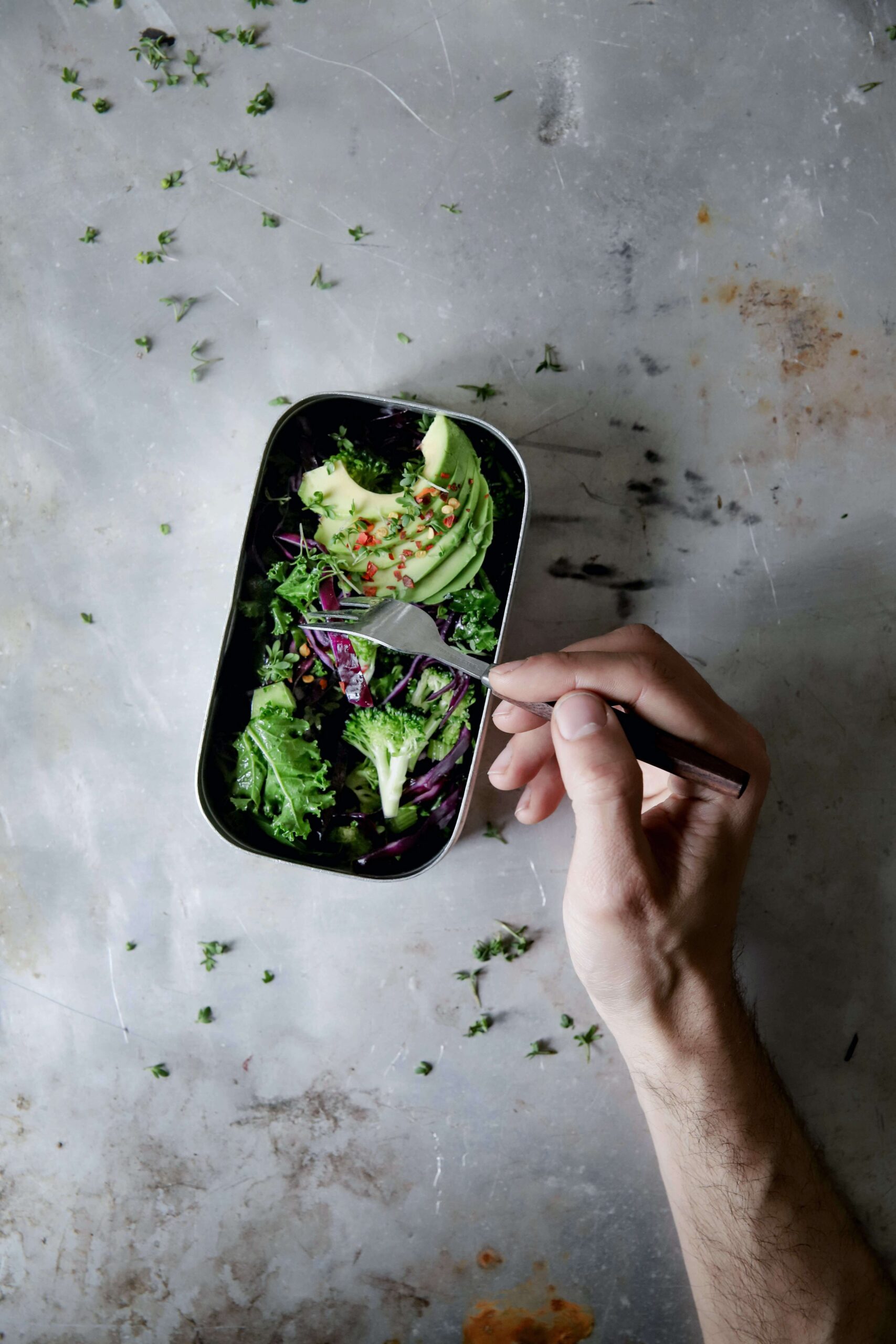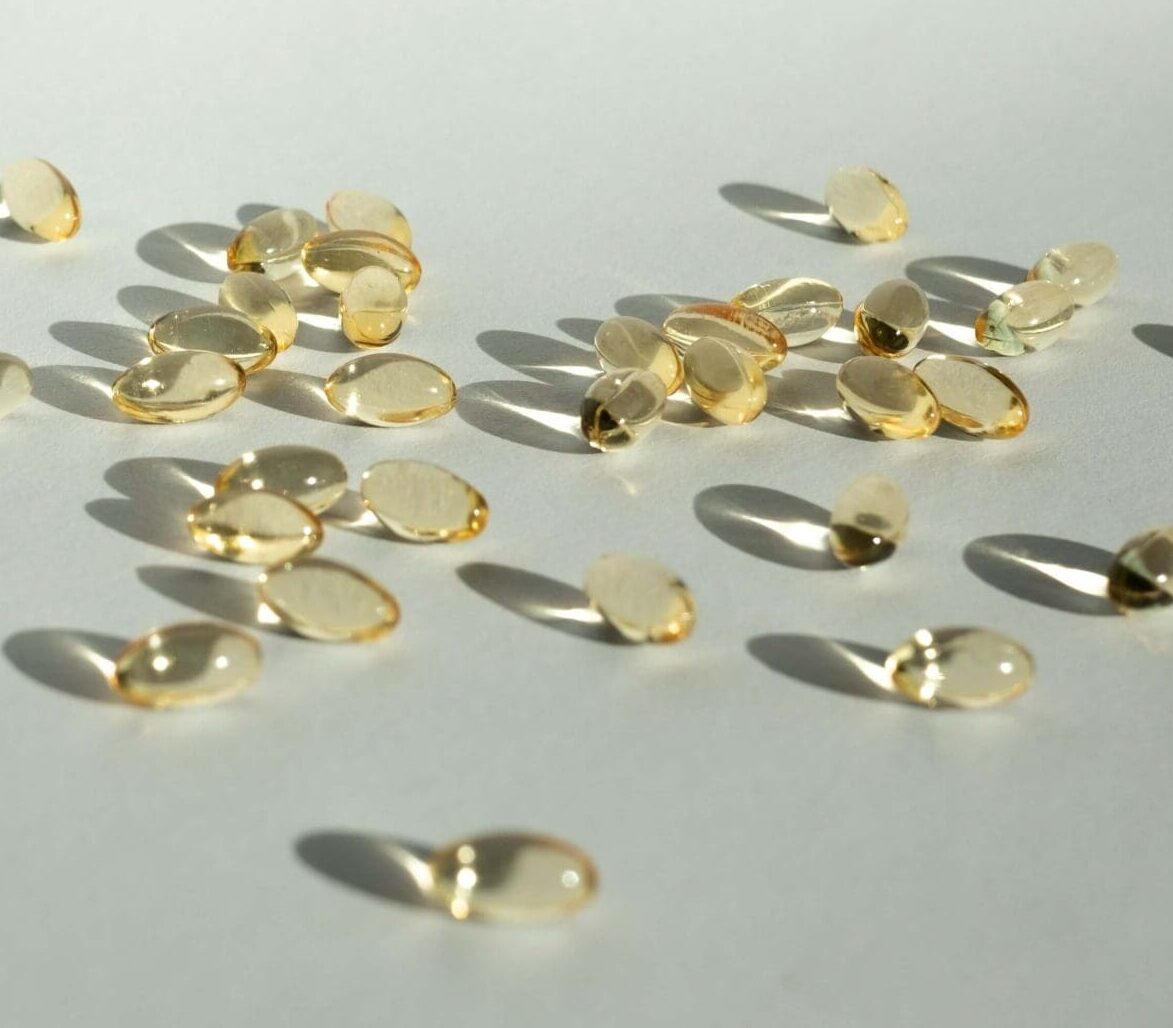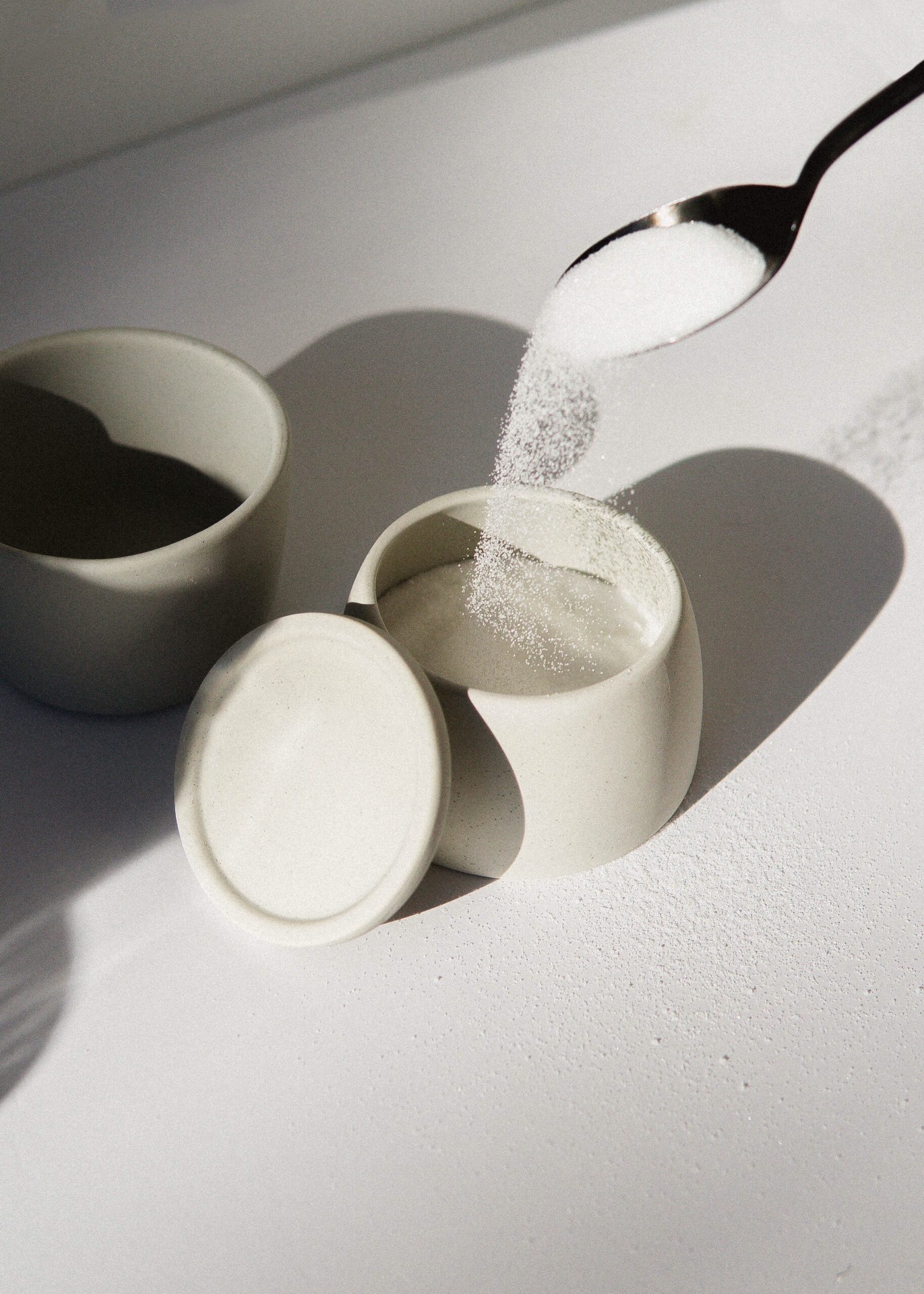If you’re like me, you probably reach for a handful of nuts when you need a quick snack as you know they taste good and are packed with nutrients. But what if I told you that choosing walnuts could be one of the simplest ways to protect yourself from cancer?
As your cancer dietitian, I’m not here to hand you random tips I help survivors turn trustworthy science into daily actions that build confidence before every scan. Today, we’re diving into walnuts and the amazing new research showing how they help reduce cancer risk, especially colorectal cancer.
Here’s the thing: walnuts aren’t just another healthy snack. These little powerhouses are working overtime in your body, feeding the good bacteria in your gut microbiome and creating compounds that fight inflammation.
When I teach clients to work consistently, they stop second-guessing and start feeling supported by their choices. The American Cancer Society and leading cancer centers like Moffitt Cancer Center are taking notice of how these plant compounds protect our health.
Let’s break down exactly how walnuts protect you and why you should add them to your daily routine.
Feeling overwhelmed about upcoming scans? I built this for you. Download my comprehensive Clean Scan Plan to prepare confidently and understand your results better.
The Latest Science on Walnuts and Cancer Prevention
Exciting research from the University of Connecticut School of Medicine just changed everything we know about walnuts and cancer. Scientists studied 39 people at risk for colon cancer who ate just two ounces of walnuts daily for three weeks.
Using high-definition colonoscopies, they found major reductions in inflammation markers and changes in colon tissue that could prevent colon carcinogenesis (how colon cancer develops).
As I walk clients through this study, the “why” finally clicks this isn’t about perfection; it’s about stacking simple, proven choices that move the needle.
But here’s where it gets really interesting. The magic happens when special plant compounds in walnuts called ellagitannins break down into ellagic acid, which then meets your gut bacteria.
Your microbial community transforms these compounds into Urolithin A, which has powerful anti-cancer properties. People who made more Urolithin A showed reduced levels of vimentin, a protein linked to advanced colon cancer.
The research, supported by the California Walnut Commission and National Cancer Institute, used advanced techniques like gas chromatography to measure compounds and Ingenuity Pathway Analyses to understand how these microbial metabolites actually change gene expression in ways that stop cancer before it starts.
The American Institute for Cancer Research confirms that eating an ounce of nuts daily is linked to a 15% lower overall cancer risk. For colorectal tumor prevention and reducing cancer recurrence, the protection is even stronger. As you explore other functional foods for cancer prevention, walnuts stand out as one of the most powerful options available.
Client snapshot (what this looks like in real life): One survivor came to me skipping meals out of fear she might “feed cancer.” We rebuilt her day with simple anchors walnuts included and within weeks she had steadier energy, less GI distress, and most importantly, walked into her next scan feeling prepared.
Omega-3 Fatty Acids: Your Anti-Inflammatory Warriors
Walnuts are the only tree nut loaded with omega-3 fatty acids, specifically omega-3 alpha-linolenic acid (ALA). These are a type of polyunsaturated fatty acids that your body can’t make on its own. One serving of walnuts (about ¼ cup) gives you 2.5 grams of ALA that’s more than double what you need each day according to FoodData Central.
These omega-3s work like tiny firefighters in your body, putting out the flames of inflammation that can lead to cancer. Research from Marshall University and other institutions shows omega-3s may help prevent breast cancer, prostate cancer, and especially colon cancer.
They change how cancer cells grow, affect gene expression, and even help prevent DNA damage. For more information on anti-inflammatory foods to reduce cancer risk, walnuts are just the beginning of your protective arsenal.
When I map this out with clients, I don’t just say “eat more omega-3s.” I plug ALA targets into their actual meals so it’s easy to hit no extremes, no anxiety.
Why Omega-3s Matter for Cancer Prevention
Your body uses omega-3s to:
- Lower inflammation and reduce cytokine production
- Improve how your immune cells work
- Stop cancer cells from multiplying
- Help damaged cells repair themselves
- Reduce oxidative stress that damages DNA
- Support cardiovascular health (important during cancer treatment)
How Your Gut Microbiome Turns Walnuts Into Cancer Fighters?
This is where things get fascinating. Your gut microbiome those trillions of bacteria living in your intestines plays a huge role in cancer prevention and gut health. When you eat walnuts, you’re not just feeding yourself; you’re feeding specific good bacteria that protect against cancer. Understanding the connection between your gut microbiome and cancer helps explain why walnuts are so powerful.
Research using advanced 16S rRNA gene sequencing shows that eating walnuts changes your microbial community structure in just three weeks.
Scientists identify different bacteria by grouping them into what they call operational taxonomic units, which helps them track changes in your gut. The microbial diversity increases, which is a sign of better gut health.
The bacteria that increase include types that produce short-chain fatty acids, which protect your colon cells. Scientists found that walnut eaters had more of these beneficial bacteria: Roseburia, Lachnospira, and Ruminococcus.
But the real star is how these bacteria transform walnut compounds into Urolithin A and other microbial metabolites. Not everyone makes the same amount it depends on your unique gut bacteria.
Some people have more of what scientists call Clade F or Clade I bacteria that are really good at making these protective compounds. That’s why some people might get more cancer protection from walnuts than others. The good news? Regular nut intake helps build up the right bacteria over time.
What I do with clients: We focus on consistency and pair walnuts with fiber patterns that feed Urolithin-producing bacteria small, repeatable actions that compound.
What Urolithin A Does in Your Body?
When your gut bacteria create Urolithin A from walnuts, it:
- Reduces inflammation markers in blood, urine, and stool samples
- Changes the immune cells inside colon polyps (growths that can become cancer)
- Increases levels of peptide YY, a protein that stops colorectal cancer
- Decreases inflammatory proteins that feed cancer growth
- Helps cells stay healthy and function properly
- May even affect metabolic parameters that influence cancer risk
Take Control of Your Health Journey
My Clean Scan Plan has helped thousands navigate their cancer journey with confidence. Get instant access to this valuable resource.
The Mediterranean Diet Connection
Walnuts are a key part of the Mediterranean diet, which research shows can reduce colorectal cancer risk significantly. Studies following thousands of people found that those eating a Mediterranean pattern had up to 60% lower risk of developing precancerous polyps.
When I build plates with clients, this is the backbone not trends, just a proven pattern they can actually live with.
The Mediterranean diet works because it combines cancer-fighting plant-based foods like walnuts with other protective foods: extra virgin olive oil, fish, cruciferous vegetables, and whole grains. This eating pattern naturally limits red meat, which the Centers for Disease Control and Prevention links to increased cancer risk. Together, these foods create what scientists call a “synergistic effect” they work better together than alone.
Other foods that contain similar protective compounds include pomegranate seeds (which also have ellagitannins) and fermented foods that support your gut bacteria. While the keto diet is trendy, research shows the Mediterranean pattern with its variety of whole foods offers stronger cancer protection.
In my seasonal eating for cancer prevention post, I talk about how combining different protective foods amplifies their benefits. Walnuts fit perfectly into this approach.
Beyond Cancer: Other Health Benefits
While we’re focusing on cancer prevention, walnuts do so much more for your health. The same phenolic extracts and compounds that fight cancer also protect against other diseases:
Heart Health
The omega-3s and polyunsaturated fatty acids in walnuts lower bad cholesterol, reduce blood pressure, and protect against cardiovascular diseases and coronary heart disease. Studies show walnut eaters have lower risk of heart disease important since many cancer treatments can affect cardiovascular health. Through diet modification, you can protect both your heart and reduce cancer risk.
Type 2 Diabetes Prevention
Research shows regular walnut consumption helps prevent Type II diabetes. The healthy fats and fiber help regulate blood sugar and improve insulin sensitivity. This matters because having diabetes increases cancer risk, especially for colorectal cancer.
Brain Function
Those same anti-inflammatory compounds that fight cancer also protect your brain. Walnuts may help prevent the “chemo brain” fog that many survivors experience. Leading researchers like Dr. Shelley Tworoger have studied how nutrition affects cognitive function in cancer survivors.
Weight Management
Despite being calorie-dense, research shows your body doesn’t absorb all the calories from walnuts only about 145 calories from a 190-calorie serving actually get used. Plus, they keep you full longer, helping maintain a healthy weight (crucial for cancer prevention as I discuss in my article on body fat and cancer risk).
Client snapshot: A post-chemo client struggling with weight regain used my snack matrix (yes, walnuts made the list). She stabilized her weight, energy improved, and the “am I doing enough?” loop finally quieted.
How to Add More Walnuts to Your Day?
The research shows benefits from eating just 1-2 ounces daily (about ¼ to ½ cup). Here are my favorite ways to get your daily dose:
Morning Boost
- Sprinkle chopped walnuts on oatmeal with berries
- Blend into smoothies for creaminess and nutrition
- Mix into Greek yogurt with a drizzle of honey
- Add to whole grain pancake or waffle batter
Lunch and Dinner Ideas
- Toss into colorful salads for crunch
- Make walnut-based salad dressings with extra virgin olive oil and dijon mustard
- Crust fish or chicken with crushed walnuts
- Stir into grain bowls with roasted cruciferous vegetables
- Mix into pasta with pomegranate seeds for extra antioxidants
Smart Snacking
- Keep pre-portioned bags for grab-and-go snacks
- Mix with dried cranberries and dark chocolate chips
- Make energy balls with dates and walnut butter
- Pair with apple slices for the perfect afternoon snack
Inside my programs, I build these directly into your meal map so it’s effortless not another to-do. For comprehensive guidance, explore the power of nutrition for cancer survivors.
Special Considerations
Make sure you are aware about your body.
Nut Allergies
If you’re allergic to tree nuts, don’t worry! You can get omega-3s from ground flaxseed, chia seeds, or hemp hearts. The fiber benefits come from beans, lentils, and whole grains. Animal research is looking into alternative sources of these protective compounds.
During Treatment
If you’re going through cancer treatment and dealing with mouth sores or swallowing issues, try walnut butter instead of whole nuts. It’s gentler but still gives you all the benefits. My programs for cancer survivors, developed with input from Cancer Care guidelines, include many tips for adapting healthy foods during treatment challenges.
Avoiding Food Additives
Choose plain, raw walnuts when possible. Some packaged varieties contain food additives and excess salt that you don’t need. Check labels and stick to simple ingredients.
Storage Tips
Walnuts’ healthy oils can go rancid. Store them in an airtight container in the fridge (up to 6 months), or freeze (up to 1 year). If they smell paint-like or bitter, toss them.
The Bigger Picture: Your Cancer Prevention Lifestyle
Remember, no single food prevents cancer alone. Walnuts work best as part of an overall healthy lifestyle that includes:
- Eating plenty of fiber (aim for 30 grams daily every 10-gram increase lowers colorectal cancer risk by 7%)
- Choosing plant-based foods over red meat most days
- Staying active with regular exercise
- Maintaining a healthy weight to reduce type 2 diabetes and cancer risk
- Limiting alcohol and processed meats (as recommended by the American Cancer Society)
- Managing stress and getting quality sleep
- Including other cancer-fighting foods like cruciferous vegetables and fermented foods
Laboratory studies using cancer cell lines like MDA-MB 231 show that walnut compounds stop breast cancer cells from growing. While more human studies are needed, the evidence keeps mounting that simple dietary changes like adding walnuts can make a real difference.
This is what I help you implement step by step, with support inside my VIP 1:1 coaching program so it’s manageable, not overwhelming.
The Bottom Line
The research is clear: eating walnuts regularly can significantly reduce your cancer risk, especially for colorectal cancer. Just a small handful daily feeds your gut bacteria, reduces inflammation, and provides compounds that actively fight cancer development.
You don’t need to eat pounds of walnuts or follow a perfect diet. Start with what feels manageable maybe that’s adding walnuts to your morning oatmeal three times a week. Small, consistent changes add up to big protection over time.
Remember, eating for cancer prevention doesn’t mean giving up foods you love. It means adding more of the good stuff, like walnuts, that makes your body stronger and more resilient. And honestly? With all their versatility and delicious nutty flavor, walnuts make healthy eating pretty enjoyable.
Ready to Feel More Confident About Your Health?
Join thousands who’ve transformed their scan experience with my Clean Scan Plan the same starter framework I use with clients.
Yes! Send Me the Free Clean Scan Plan →
References
- https://cancerpreventionresearch.aacrjournals.org/content/14/1/65
- https://www.aicr.org/news/walnuts-support-cancer-preventive-diet/
- https://www.nih.gov/news-events/nih-research-matters/antioxidant-properties-walnut
- https://fdc.nal.usda.gov/fdc-app.html#/food-details/170187
- https://bmcmicrobiol.biomedcentral.com/articles/10.1186/s12866-023-03124-0
- https://www.frontiersin.org/articles/10.3389/fonc.2022.931330
- https://www.aicr.org/resources/blog/dietary-fiber-colorectal-cancer/




